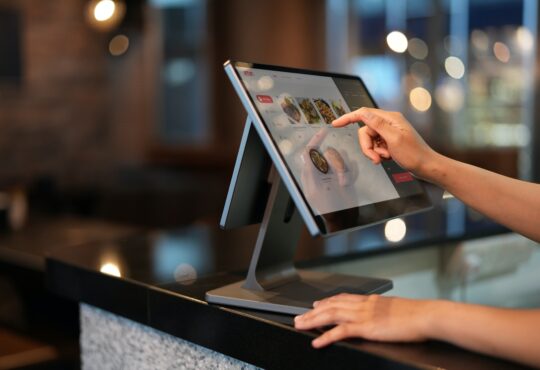
Why Restaurants Should Explore Beyond Traditional Billing and Point-of-Sale Systems/Restaurant Management Systems
In the ever-evolving landscape of the restaurant industry, adaptability is the key to survival. While tried-and-true methods have their place, restaurants need to look beyond traditional management systems to thrive in the digital age. In this blog, we’ll delve into why restaurants should consider modernizing their operations and explore the benefits of doing so.
1. Evolving Customer Expectations:
The modern diner’s expectations have undergone a significant transformation. Today’s customers seek convenience, personalization, and efficiency in their dining experiences. They expect to browse menus, place orders, and make payments seamlessly using their smartphones. Traditional systems, which rely heavily on in-person interactions and paper-based processes, can no longer keep up with these demands.
2. The Rise of Online Ordering:
The COVID-19 pandemic accelerated the shift toward online ordering and food delivery. Restaurants that were quick to adopt digital solutions not only survived but thrived during challenging times. Online ordering platforms and third-party delivery services have become essential tools for attracting and retaining customers. Restaurants relying solely on traditional systems often struggle to compete in this new landscape.
3. Data-Driven Insights:
In the digital age, data is king. Modern restaurant management systems offer robust analytics and reporting capabilities that provide invaluable insights into customer preferences, ordering trends, and inventory management. This data empowers restaurants to make informed decisions, tailor their menus, and optimize their operations for better profitability.
4. Improved Efficiency:
Traditional systems often involve manual processes, which can be time-consuming and error-prone. Modern management systems, on the other hand, automate many tasks, such as order processing, inventory tracking, and employee scheduling.
5. Enhanced Customer Experience:
Customers appreciate a seamless and hassle-free dining experience. Modern systems, including mobile apps and self-service kiosks, allow customers to place orders, customize their meals, and pay quickly. This streamlined process leads to higher customer satisfaction and encourages repeat business.
6. Cost Savings:
While the initial investment in modern restaurant management systems may seem significant, the long-term cost savings can be substantial. Automation reduces labour costs, minimizes food waste through better inventory management, and optimizes pricing strategies based on data analysis.
7. Sustainability and Eco-Friendliness:
Modern systems often include features that support sustainability initiatives. Digital menus, E-bills etc. reduce the need for printed materials, and efficient inventory management helps reduce food waste. Embracing eco-friendly practices not only benefits the environment but also aligns with the values of socially conscious consumers.
8. Adaptability to Market Trends:
The restaurant industry is subject to rapid changes in consumer preferences and market trends. Modern management systems are more adaptable and can accommodate new features and technologies as they emerge. This adaptability future-proofs your restaurant against unforeseen challenges.
Conclusion: The restaurant industry is in the midst of a digital revolution, and restaurants that cling to traditional management systems risk falling behind. Embracing modernization is not just a matter of survival; it’s an opportunity for growth and success. By looking beyond tradition and investing in innovative restaurant management solutions, you can cater to the evolving needs of your customers, improve efficiency, reduce costs, and ultimately, secure the future of your restaurant.
